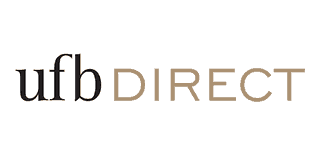
If you’re one of the 80% of taxpayers who will be receiving a tax refund this year, here's what to do with your tax refund according to experts.
The average tax refund payment was more than $2,753, according to the IRS. That's a lot of money that you can put to good use.
While you can probably imagine plenty of places to put your prized refund check today, you might not be thrilled with the choice tomorrow.
Rather than spend all of your money frivolously, why not use it to boost your bottom line?
Invest that money in one of the ideas listed below, and you can guarantee your future self with thank you. You may even have some fun along the way. Plus, make sure you check out the three things you should NOT do with your tax refund at the bottom of the article.
Here are some of the best ways to put your tax refund to good use this year:
1. Pay Off High Interest Debt
While it’s certainly not the most exciting option on this list, if you have credit card debt, paying it down (or off) when you get your tax return is one of the best financial moves you can make.
Free yourself from the shackles of high interest charges and kick at least a portion of that debt to the curb. It can also help boost your credit score, opening doors and securing your financial future.
It’s been said that action breeds confidence and courage—taking this first step towards knocking down your debt will help you move in a positive financial direction.
2. Build Your Emergency Fund
Your car broke down; your child got sick; the neighbor kids busted your window while playing baseball. Accidents happen all of the time so make sure you’re prepared for them!
You may not be able to plan exactly for every expense that will pop up, but you can expect the unexpected and prepare yourself for the worst. Unexpected expenses don't have to destroy your finances.
You’d be amazed at how free you’ll feel once you have the peace of mind of knowing you’re ready for the random strikes that life throws your way.
That's why using your tax refund to fill an emergency fund is a smart move!
3. Open A High-Yield Savings Account
If you are unsure of exactly how to spend your tax refund or you’d just like to stow it away for safekeeping (or for your emergency savings), an online savings account is the way to go.
Online banks are able to offer the most competitive rates out there because they don’t have branches to support. For that reason, you’ll find far higher interest rates with an online bank than a traditional one.
Whether you use the account to house your emergency fund, or just to establish some solid financial habits by putting money away in savings, you should absolutely consider online savings. See our list of the best online savings accounts, or this small selection here:
Bank Name | APY | Get Started |
|---|---|---|
At Western Alliance Bank, Member FDIC | ||
At AXOS Bank, Member FDIC | ||
At CIT Bank, Member FDIC |
Bank Name | APY |
|---|---|
At Western Alliance Bank, Member FDIC | |
At AXOS Bank, Member FDIC | |
At CIT Bank, Member FDIC |
4. Max Out Your Roth IRA
The value of a Roth IRA cannot be emphasized enough. A Roth IRA is funded with post-tax dollars, meaning your distributions won’t be taxed as long as you follow the rules. You also won’t be penalized for withdrawals.
Considering the amazing benefits Roth IRAs provide, if you qualify for one you should try your best to max it out every year.
However, even small amounts can do wonders over the long-term, so take that tax refund check and send over whatever you can!
Our top pick for a Roth IRA is Charles Schwab, where you can invest commission free!
5. Start Investing With A Robo-Advisor
If your debts are paid and your emergency fund is already stocked, have some fun with your refund by investing it with an online platform.
Whether you’re new to the investing game or have some trades under your belt, a robo-advisor can offer you simplified, affordable trading and resources.
Wealthfront is one of our top picks, as it offers dozens of customized portfolios and does all the work for you.
Wealthfront then automates your investments, rebalancing your allocations for you.
6. Apply Your Refund To Your Future Tax Bill
Are you self-employed? A freelance or contract worker? If you’re required to make estimated quarterly tax payments, you can apply your refund directly to those future obligations.
Doing so now will help to alleviate tax-related stress in the future. It will also help to free up future income for other financial goals.
Rather than letting these expenses catch you off guard, you can pay for them with your tax refund, relieving the financial burden and administrative task of working those costs into your budget down the line.
7. Make A Principal-Only Extra Mortgage Payment
If saving thousands of dollars in interest appeals to you, making additional payments to your mortgage, especially those that are principal-only, is the easiest way to do so other than paying off credit card debt.
Check to make sure your mortgage company doesn’t charge a pre-payment penalty. If they don’t, send that check (or make that online payment) today.
Every little bit of extra money you spend paying down the principal helps, potentially cutting months or even years off the length of your mortgage. Your tax refund is a great place to start expediting your mortgage repayment.
8. Invest In Your Home
Home improvements are a great way to boost your home’s value. Plus, if there’s a project you’ve been wanting to complete but haven’t had the money to do so, finally crossing it off your to-do list will increase your overall satisfaction.
Simple, inexpensive changes such as paint color, faucets, and light fixtures can make a world of difference. Additionally, if you challenge yourself to DIY these upgrades or repairs, you’ll expand your skill set while saving money.
9. Invest In Yourself
Never underestimate the option to invest in your health, education, or relationships. Investing in yourself has the potential for the highest return on investment.
From enrolling in foreign language courses to getting back into shape or rekindling that romantic spark, with a small investment in yourself, you can literally reap the benefits for years to come.
One of the best long term investments you can make is improving your marketability in the professional world. Whether it’s going back to school, seeking professional development opportunities, or honing your skills, you won’t regret putting money behind your professional goals.
10. Give It Away
One of the most rewarding ways to spend your tax refund money is to donate it to a cause you’re passionate about.
If you don’t have a particular organization in mind, a quick bit of research can provide you with tons of legitimate and worthwhile causes to donate to.
You’ll feel great knowing your money is making a difference in people’s lives, and as an added bonus, you’re preemptively working on next year’s tax season since your donation could be a deduction a year from now.
If you don't know where to give it, you can even consider starting a Donor Advised Fund (DAF).
11. Have (a bit of) Fun
While it’s ideal to take care of the items above on this list in lieu of having fun, it’s not realistic. To avoid burnout or resentment, try allotting a small portion of your tax return to whatever new gadget you’ve been coveting, a nice meal out, or some other purchase that is for pure enjoyment.
While you shouldn’t invest your whole return into the fun and frivolous, you can wisely set aside some of it for your leisure. In other words, you can treat yourself without going overboard.
You’ll definitely not regret giving yourself a bit of a break as long as you’re still moving along well with your other financial goals.
3 Things To Avoid Doing With Your Tax Refund
We've to you what to do with your tax refund, now let's talk about what NOT to do with your tax refund. We see these issues happen every year, and we really want you to avoid them!
Do Not Spend Your Tax Refund Before Receiving It
Too many tax filers each year use tax advance refund loans - as early as December. This allows people to get an advance on the refund, which then gets repaid when they file their taxes.
But this is a silly waste of money, and risky financially. First, most of these loans have fees, charges, or even higher tax preparation fees. It's risky, because many early filers do so before getting all their paperwork, and they end up missing something.
This can actually result in a tax refund being delayed, or even an audit later on.
Considering that the average tax return only takes 21 days to process, according to the IRS Refund Schedule, just be patient and file at a normal time. Even better, plan ahead to not get a large refund.
Steer Clear Of Impulse Purchases
Getting a lot of money hitting your bank account all at once can feel amazing. But then human nature kicks in, and you get an urge to spend it on something you've been wanting. It's a tough feeling to shake, but it's so much better to invest your tax refund than waste it on impulse purchases you'll never remember in 5 months.
Keep Getting A Large Tax Refund
While the average refund is almost $3,000, a lot of people don't realize that a tax refund is simply a refund of extra money you paid the IRS all year.
Instead of $3,000 at tax time, you could actually be getting $250 more in your paycheck each month! If you're paid bi-weekly (like most Americans), you could be getting an extra $115 per paycheck. Seriously!
If you consistently receive large refunds, and it can make sense to adjust your W4 tax withholding to balance your taxes better. This can give you more money each paycheck, and a smaller refund at tax time.
What do you plan to do with your tax refund this year?

Robert Farrington is America’s Millennial Money Expert® and America’s Student Loan Debt Expert™, and the founder of The College Investor, a personal finance site dedicated to helping millennials escape student loan debt to start investing and building wealth for the future. You can learn more about him on the About Page or on his personal site RobertFarrington.com.
He regularly writes about investing, student loan debt, and general personal finance topics geared toward anyone wanting to earn more, get out of debt, and start building wealth for the future.
He has been quoted in major publications, including the New York Times, Wall Street Journal, Washington Post, ABC, NBC, Today, and more. He is also a regular contributor to Forbes.
Editor: Clint Proctor Reviewed by: Colin Graves

